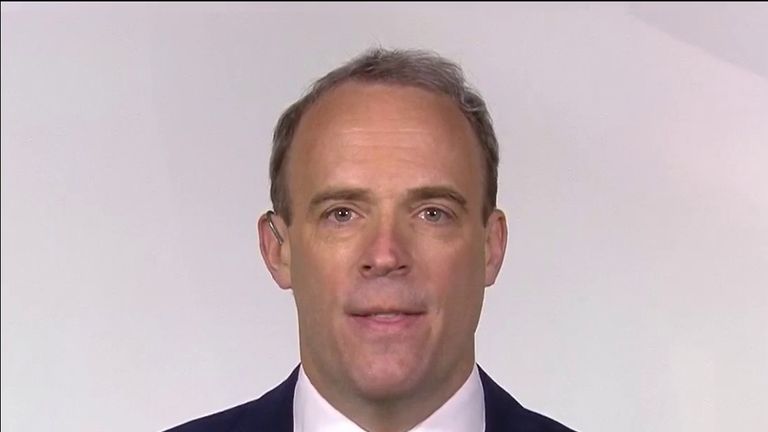Coronavirus: Bosses given detail of emergency insolvency reforms
Directors may be given longer to meet Companies House deadlines under emergency insolvency reforms, Sky News learns.
Monday 11 May 2020 12:14, UK
The business secretary will gain powers to extend deadlines for company filings to enable directors to focus on dealing with the impact of the COVID-19 crisis, under a package of new government measures to be unveiled this week.
Sky News has obtained a summary of the eight measures to be included in the Corporate Insolvency and Governance Bill, which is due to begin its emergency passage through parliament in the coming days.
The majority of them are focused on giving company bosses additional breathing space "to maximise their chances of survival, protect jobs and support the country's economic recovery", according to a document circulated by the Department for Business, Energy and Industrial Strategy.
So far during the crisis, companies including Carluccio's and Debenhams have collapsed into administration, putting thousands of jobs at risk.
Among the measures aimed at boosting companies' survival hopes, some of which were outlined last month, is a moratorium preventing legal action being taken against them without the permission of a court.
The bill will also prevent suppliers to a stricken company terminating their agreements unless it causes hardship to their own business, and includes a so-called 'cram down' requirement on dissenting creditors that forces them to accept a restructuring plan.
As Sky News reported several weeks ago, the emergency legislation will also remove the threat to directors of being held personally liable for wrongful trading if it finds itself unable to avoid insolvency as a result of the coronavirus pandemic.
A further two measures in the bill will remove the threat of winding-up petitions against companies with unpaid debts as a result of the pandemic, while statutory demands issued against companies will be temporarily voided once the legislation is enacted.
Many restaurant operators and other high street tenants have been hit by winding-up petitions since March despite the looming reforms.
Sources said the bill would also allow companies to hold shareholder meetings outside the remit of their own constitutions, meaning that "directors will not be exposed to liability for measures that need shareholder endorsement, and shareholders rights are preserved", according to the BEIS document.
That change would be applied retrospectively to meetings held since March 26, reflecting the number of AGMs whose format has had to be amended because of COVID-19.
The other principal measure in the bill will cover the legal requirement for companies to make various filings at Companies House by fixed deadlines each year - with a failure to do so triggering a fixed financial penalty.
"Companies House has already done all it can under existing law to offer extensions to those deadlines," the BEIS document said.
"Over 50,000 companies have taken advantage of this flexibility already, but they may need more.
"The bill allows the Secretary of State temporarily to make further extensions, enabling struggling businesses to focus on the things that matter most while they have reduced resources and restrictions."
Previous guidance from BEIS had indicated only that appeals against late filing penalties would be "treated sympathetically".
Companies House has also temporarily suspended the process under which companies are dissolved for serial failures to meet deadlines.
A spokesman for the Insolvency Service declined to comment on Monday.







